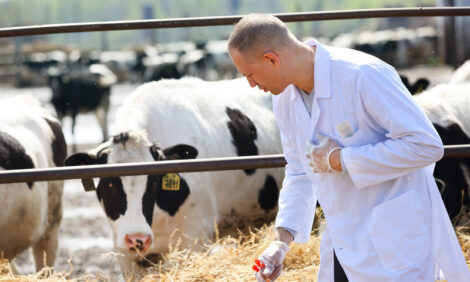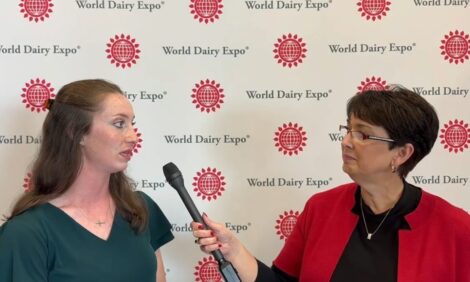



Dry Period Heat Stress Affects Calves Too
Heat Stress not only affects lactating and gestating heifers but can compromise calf development through lower birth weights and reduced immunity, researchers have discovered.Calves born to heat stressed cows were 13 pounds lighter than normal calves at birth and 28 pounds lighter at weaning, according to tests done on heifer calves at the University of Florida.
Reduced absorption of antibodies in the colostrum was a principle cause for smaller calves at weaning.
The research, published in the Journal of Dairy Science, said that although Immunoglobin (IgG) content in the mother’s milk was not affected, the efficiency at which it was absorbed by the calf was reduced.
This was found by taking 34 dry cows 45 days prior to calving and exposing them to one of two temperatures. Half received ambient conditions and the other half were exposed to cooling from fans and sprinklers.
Heat stress in gestating cows was gauged by measuring rectal temperature, feed intake and milk production during the subsequent lactation.
The test showed calves from heat stressed dams had lower lgG concentrations for the first 28 days when compared with calves from cool cows. This indicates reduced passive transfer of immunity.
But, cell-mediated immunity was also compromised in heat stressed calves. This was done by serological tests that analysed white blood cells.
Fewer lymphocytes were present in circulation when measured at 7, 28, 42 and 56 days of age. This was assessed by B Cell and T Cell responses, although the scientists caveated that B-cell function cannot be determined from the study.
No difference in average daily weight gain between the two groups of calves was found. Likewise, body weight and height of withers from weaning to seven months of age was not impacted either.
However, as summer approaches, members of staff at Penn State University are urging farmers to scrutinise barn ventilation and evaluate cooling strategies as summer approaches.
They say that additional calf development data should persuade farmers to treat heat stress not simply as a welfare and milk output problem but one that clearly impact on replacements and youngstock enterprises further down the line.
Michael Priestley
News Team - Editor
Mainly production and market stories on ruminants sector. Works closely with sustainability consultants at FAI Farms



